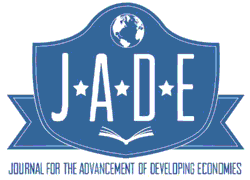Institute for the Advancement of Developing Economies

Journal for the Advancement of Developing Economies
Date of this Version
2013
Document Type
Article
Citation
Journal for the Advancement of Developing Economies 2013 Volume 2 Issue 2
doi:10.13014/K2M61HF4
Abstract
Foreign Direct Investment (FDI) is an important source of financing development. It enhances efficiency and raises skills of local manpower, facilitates transfer of technology, generates employment and promotes productivity resulting in broad welfare improvements. Although FDI could have a substantial impact on the growth of African economies, poverty reduction and the achievement of various dimensions of human development as articulated in the Millennium Development Goals, its flows to Africa, though growing steadily have been relatively low, volatile, and highly concentrated in a few countries. One of the factors that have been identified in the literature as key drivers of FDI is exchange rate volatility; yet, the evidence on the impact of exchange rate volatility on FDI has been mixed and few of such studies focus on Africa. Using a dynamic linear panel model applied to data from 27 African countries, this study examines exchange rate volatility on FDI flows to Africa. The study finds a robust negative and significant impact of exchange rate volatility on FDI in African countries. Greater stability in the exchange rate system may be desirable in order to promote higher volumes of foreign direct investment inflows in African countries.
Included in
Econometrics Commons, Growth and Development Commons, International Economics Commons, Political Economy Commons, Public Economics Commons, Regional Economics Commons


Comments
Copyright 2013 JADE